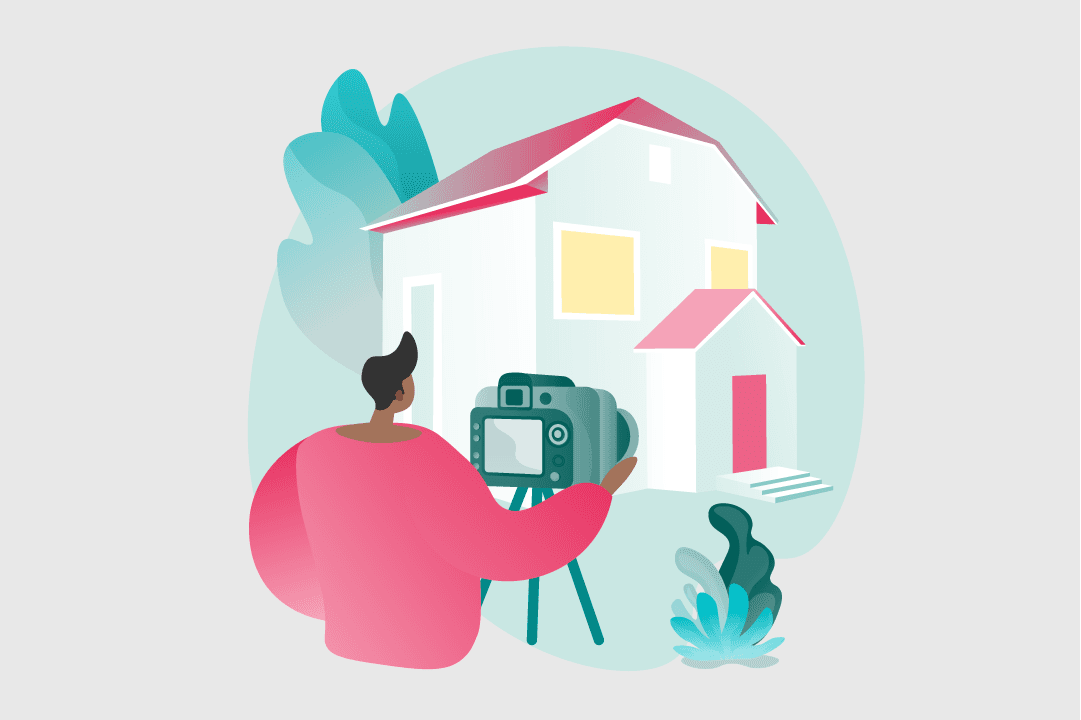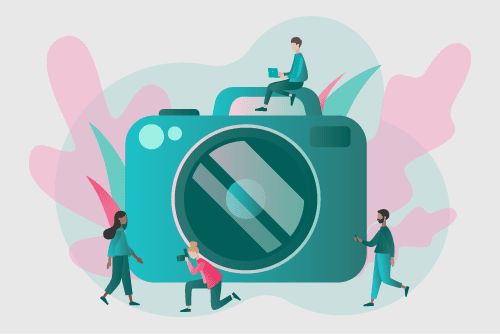Is a Photography Degree Worthwhile?

A career in photography requires business and technical skills and an artistic flair. Are these things best self-taught, or should you study photography formally?
Being a professional photographer doesn’t require any formal qualifications, but you do need expert knowledge of cameras, how to perfectly frame and light pictures, and how to edit and enhance images with a host of software, such as Photoshop. You need to know how to work with subjects and clients, and potentially the ins-and-outs of running your own business. There’s so much to learn! So, should you get a formal qualification such as a diploma or bachelor’s degree, or teach yourself the ropes?
What do Photographers Think?
Kit Haselden, who is self-taught, says:
“I think the technical skills can be 100% taught, but having natural charisma and being confident can’t easily be taught. Photographers need a love and passion for the craft of photography; natural charisma and a drive to improve and grow one’s confidence and skills.
My skills evolved because photography was all that I wanted to do. I was enthusiastic and I worked hard at it day and night. Ultimately, I knew that I was better at practical learning and I would learn better on the job. That said, I would still recommend a course to someone who has spent 1-2 years working in the industry and has already developed a portfolio.
A course would give someone some structure and routine to the beginning of their careers and a network of contacts in the industry.”
Michael Rees-Lightfoot got a diploma early in his photography career, and says:
“I know lots of people who are self-taught and had a successful career, and I know people who have done courses and done really well too. I think it depends on the person, and how much you know, but it was very important to me and I would recommend it because you will learn a lot of fundamental skills, and learn about the industry.
Like most people, I thought I knew a lot when I started the course, but I found out very quickly I knew virtually nothing! It was a really fun experience and I came a long way in my two years there. But the course was just the beginning for me, with photography you always have to be learning.
It’s difficult to make a long career in photography, you really have to have perseverance. It’s hard but the more time and effort you put in, the longer you stick with it, the higher your chances of success.”
April Davis is a photographer finishing up her bachelor’s degree, and says:
“A bachelor’s degree can help set you up to further study in visual arts and lead to careers in a gallery setting or into the public sector as well as photography.
I came to uni to learn film photography; my bachelor taught me to focus on the image and take the time to get the composition and the setting balance perfect. It also helps you build up a portfolio.
I believe people can learn on their own but connecting with other photographers and talking about your work and skills is beneficial to growth and improvement.”
12 Types of Photography Careers to Make Your Passion a Reality
There is a multitude of photography types. We break down some of the most practical, lucrative, and trending styles and genres.
Read More
The Pros and Cons of a Photography Course
Pros
Cons
The Paths to Becoming a Skilled Photographer
The three paths to becoming a great photographer are all valid, and all present their own challenges.
Path one: Self-taught
To some degree, every photographer is self-taught. Likely they’ve found themselves learning how to take great photos from the second they first held a camera.
Becoming a self-taught professional is a step-up in commitment and effort, though. This career path is perfect for the person who knows a lot already, can pick things up as they go along, has the confidence and drive to find opportunities and to find professional contacts.
Being self-taught doesn’t mean being all on your own. Kit explains that when he decided to be a photographer, he got in touch with as many working photographers as possible. “I asked them if I could interview and meet them. After seeing them in action I was hooked.”
“I was obsessed with learning all the elements of photography and networking with the right people. I did online courses, mostly free ones. I practised! I took my camera everywhere I went, it was like another limb!”
Finding mentors, getting real-world work experience by shadowing professionals, joining local photography groups, and enrolling in short courses are great ways to build skills and contacts.
Path two: TAFE or VET
TAFE courses are great for job prospects in Australia, don’t take as long and aren’t as expensive as bachelor’s degrees.
Of course, it still takes a lot of perseverance to become a professional photographer. Michael says, “By the time I finished my course, about half the people who started were still left.” Of the remaining photography graduates of around 30 people, only five have become full-time professional photographers. Becoming a photographer takes a lot of commitment.
TAFE photography qualifications such as a diploma of photography are great for the person who wants to understand the fundamentals and get hands-on, guided experience, who’ll stick with it and be willing to learn more well after graduation.
Path three: Bachelor’s Degree
Higher education degrees such as a Bachelor of Arts or Bachelor of Creative Arts are great for budding photographers who aren’t in a rush, who want to learn practical skills from professional photographers and academics while also gaining a broader fine arts education.
Art school students will often take electives outside of photography, as well as art history and art theory courses. This can make it easier to pivot into careers other than photography, such as becoming an art teacher or academic, or working in galleries and museums.
Professional photographers have a range of photography skills, visual communication skills, and post-production skills. There are lots of study options and photography courses available, or you can go straight to getting real-world experience. The most important thing when thinking about embarking on a career in photography is choosing a path that will work best for you.
The Photography Career Toolkit
Curious about what it’s like to become a professional photographer? This photography career toolkit will equip you with everything you need to get started, including interviews with working photographers.





